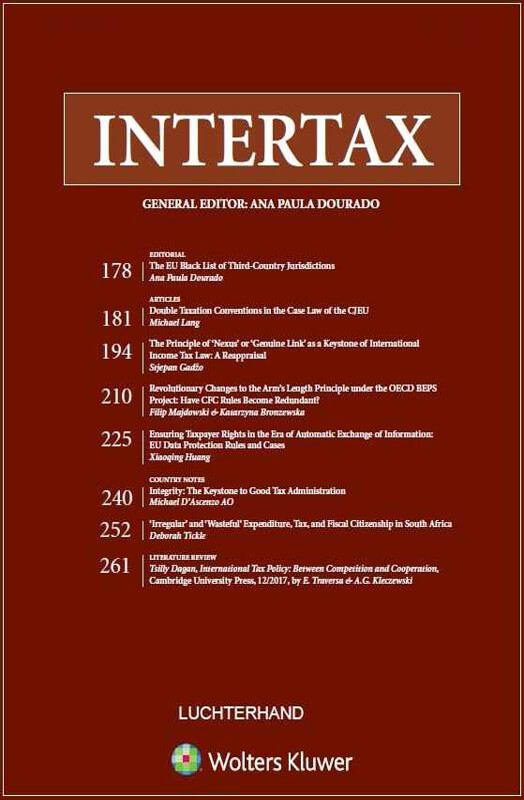Home > All journals > Intertax > 47(1) >

$25.00 - Rental (PDF) *
$49.00 - Article (PDF) *
Leopoldo Parada
Intertax
Volume 47, Issue 1 (2019) pp. 24 – 54
https://doi.org/10.54648/taxi2019003
Abstract
The OECD pragmatic approach regarding hybrid entity mismatches is, without doubt, questionable. However, equally questionable is the absence of alternatives solutions proposed by either academics or tax policy makers , which demonstrates a sort of conformism as regards both the diagnosis of the problems and the solutions thereto, as if matching tax outcomes and taxing income somewhere – no matter where – were indeed the only possible path to deal with hybrid entity mismatches.
In an attempt to break this inertia, this article argues for coordination in the tax characterization of entities as a straightforward and suitable alternative to replace the current OECD linking rules, and perhaps also, the consequentialist OECD approach to hybrid entity mismatches. For this purpose, three specific alternatives are explored for coordination in the tax characterization of entities, which include (1) supremacy of the tax characterization rules of the source state, (2) supremacy of the tax characterization rules of the residence state and (3) supremacy of the tax characterization rules of the home state. The analysis of these alternatives includes both hypotheticals and specific examples from domestic and supranational laws that are used to illustrate and support their effectiveness. The ultimate aim of this article is to demonstrate that coordination in the tax characterization of entities appears to be not only a more preferable path when compared to the OECD approach of matching tax outcomes, but also a more coherent and less costly alternative for both taxpayers and tax administrations.
Extract
